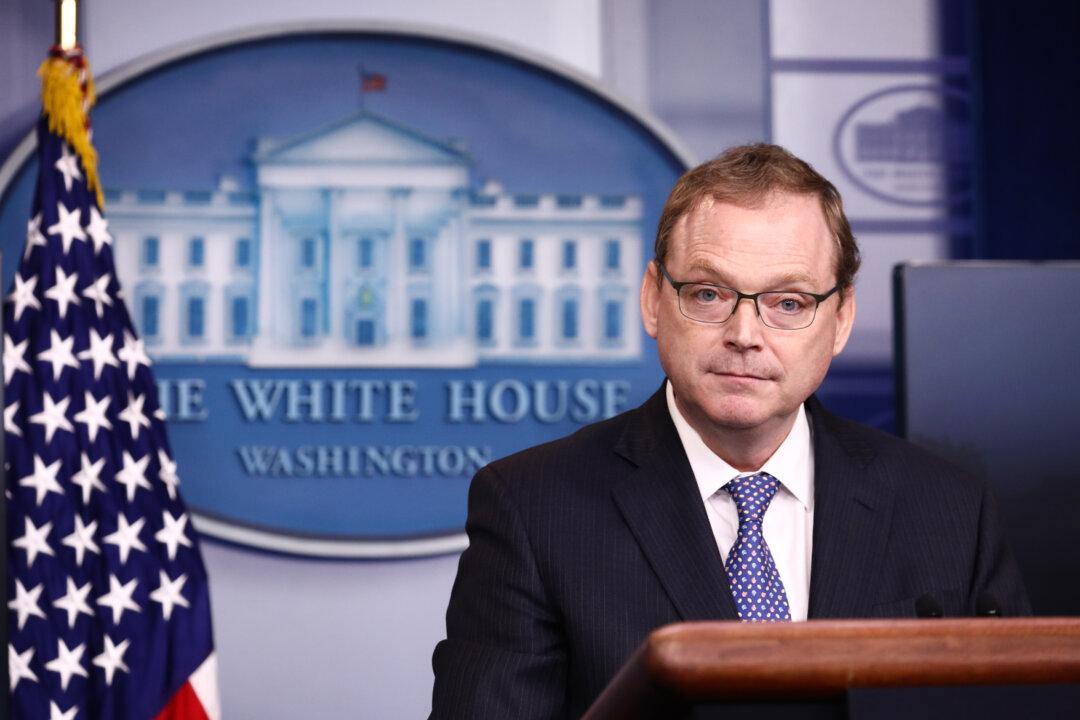U.S. stocks briefly soared during the April 7 trading session, following reports by CNBC and Reuters that U.S. tariffs might be paused, which the White House has denied.
The two media outlets reported that Kevin Hassett, director of the National Economic Council, said President Donald Trump was considering a 90-day tariff pause.





